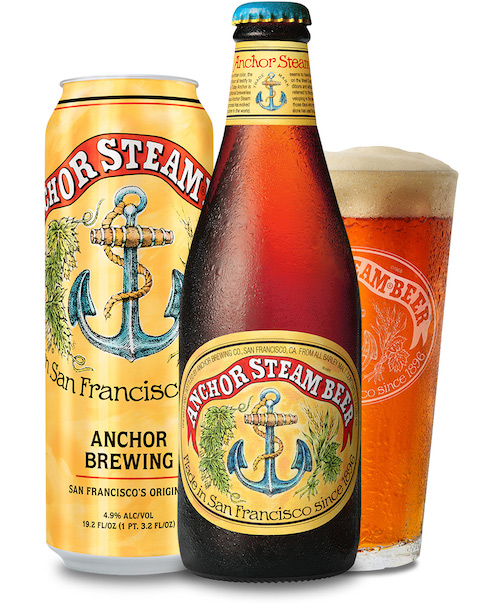Anchor Brewing Company To Shutter: What Does This Mean For Craft Beer?

Table of Contents
The Legacy of Anchor Brewing and its Impact on Craft Beer's Development
Anchor Brewing, established in 1896, holds a legendary status in the American craft beer scene. Its flagship beer, Anchor Steam Beer, wasn't just a beverage; it was a catalyst. Anchor played a pivotal role in igniting the craft beer movement, challenging the dominance of mass-produced lagers and paving the way for the explosion of independent breweries we see today.
- First commercially successful craft brewery in the US: Anchor's success proved that a small, independent brewery could thrive by offering high-quality, unique beers.
- Pioneering use of specific brewing techniques: Anchor’s unique brewing methods, including their steam-beer process, helped define and establish many craft beer styles.
- Influence on the rise of craft beer culture and consumer preferences: Anchor fostered a culture of appreciation for artisanal brewing, educating consumers about the nuances of flavor and ingredients.
- Impact on the modern craft beer landscape: The brewery's influence is immeasurable, with countless brewers citing Anchor as an inspiration and a touchstone of quality. Its closure represents the end of an era for craft beer.
Financial Challenges and the Consolidation of the Craft Beer Market
Anchor's closure highlights the significant financial pressures facing even the most established craft breweries. The craft beer market, once a rapidly expanding landscape of small, independent operations, is facing increasing consolidation.
- Rising production and distribution costs: The cost of ingredients, packaging, and distribution has steadily increased in recent years, squeezing profit margins for many smaller breweries.
- Increased competition from larger breweries and macro-brews: The craft beer market has matured, leading to intense competition from both large established players and newer entrants.
- Challenges faced by independent craft breweries in maintaining profitability: Smaller breweries often struggle to compete with the economies of scale enjoyed by larger corporations.
- Acquisition of craft breweries by large corporations: Many smaller breweries have been acquired by larger companies, leading to a decline in the number of truly independent players. This trend threatens the diversity and innovation that define the craft beer world.
The Future of Craft Beer: Diversification, Innovation, and Consumer Demand
While Anchor's closure is a significant loss, it also presents opportunities for the craft beer industry. The void left by Anchor can be filled by smaller, independent breweries focused on innovation and niche markets.
- Opportunities for smaller breweries to fill the niche left by Anchor: Other breweries can step up and offer similar high-quality, unique beers, potentially attracting Anchor's loyal customer base.
- Increased focus on innovation and diversification of beer styles: The changing tastes of consumers demand ongoing experimentation and innovation in beer styles, flavors, and ingredients.
- Importance of building strong brand loyalty and direct-to-consumer relationships: Direct relationships with customers, such as through taprooms and online sales, are vital for smaller breweries to thrive.
- Sustaining consumer demand and interest in craft beers: Consumers must remain committed to supporting independent craft breweries to ensure the sector's continued health and growth.
What Consumers Can Do to Support the Craft Beer Industry
The future of craft beer depends not just on the breweries themselves but also on the consumers who appreciate and support them. We can all play a vital role in preserving the diversity and vibrancy of the industry.
- Patronizing local breweries and taprooms: Visit your local breweries and enjoy their beers on-site. This supports their business directly.
- Purchasing craft beer directly from breweries: Many breweries offer online ordering or have their own retail spaces.
- Engaging with breweries on social media: Stay connected with your favorite breweries and show your support through likes, shares, and comments.
- Supporting independent retailers: Buy craft beer from retailers who focus on supporting local breweries and offer a wide selection of independent beers.
Conclusion: The End of an Era and the Future of Craft Beer
The closure of Anchor Brewing marks the end of an era, but it's not the end of craft beer. The industry faces significant challenges, but also immense potential for adaptation and innovation. Anchor's legacy—a commitment to quality, experimentation, and community—must be carried forward. Support your local breweries, explore new beers, and engage with the vibrant craft beer community. Let's ensure that the spirit of independent brewing thrives, honoring the past while shaping a bright future for craft beer. Support craft beer, support local breweries, and ensure the future of this vital industry.

Featured Posts
-
 Analyzing The Connection Between Aircraft And Political Influence Under Trump
May 16, 2025
Analyzing The Connection Between Aircraft And Political Influence Under Trump
May 16, 2025 -
 The Rise Of An Obscure App And The Fall Of Meta
May 16, 2025
The Rise Of An Obscure App And The Fall Of Meta
May 16, 2025 -
 Australias Election 2024 Weighing Up Albanese And Duttons Platforms
May 16, 2025
Australias Election 2024 Weighing Up Albanese And Duttons Platforms
May 16, 2025 -
 Le Repechage De La Lnh Decentralisation Et Consequences
May 16, 2025
Le Repechage De La Lnh Decentralisation Et Consequences
May 16, 2025 -
 Understanding Microsofts 6 000 Employee Layoff
May 16, 2025
Understanding Microsofts 6 000 Employee Layoff
May 16, 2025
